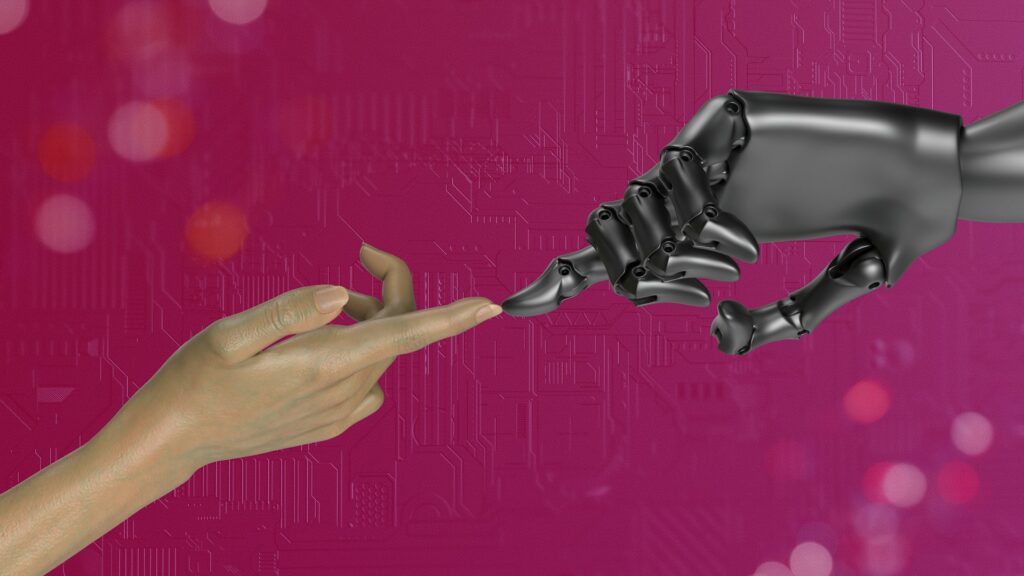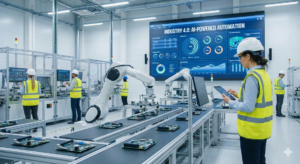In addition to scheduling and reminders, AI-powered personal assistants provide a lot more.

In addition to scheduling and reminders, AI-powered personal assistants provide a lot more.
In recent years, there has been a significant surge in the development of personal assistants that are driven by artificial intelligence. What started off as simple voice-activated tools for setting alarms or checking the weather has evolved into a complex ecology of digital assistants that are able to learn, adapt, and anticipate the requirements of humans. It is no longer sufficient for these assistants to only schedule tasks and remind people of them; rather, they are influencing the manner in which individuals manage their time, their productivity, and even their lives.
1. The Changing Face of Digital Assistance In the World
“Set a timer” and “play music” were examples of direct orders that the first artificial intelligence assistants reacted to. These assistants were mostly reactive. Natural language processing, machine learning, and predictive analytics are now being integrated into contemporary assistants, which allow them to provide solutions in a proactive manner. It is not enough for them to just wait for feedback; they anticipate consumers’ requirements before they are spoken.
2. The Role of Context Awareness in Changing the Game
The assistants that are driven by artificial intelligence nowadays are able to comprehend context, such as whether you are working, driving, or resting at home. Because of this understanding, they are able to deliver recommendations that are relevant, such as providing navigation updates when commuting or muting messages while in a meeting. Assistants are transformed from basic tools into genuine digital companions by the use of contextual intelligence.
3. More Efficient Management of Tasks
This is just the tip of the iceberg when it comes to scheduling meetings. The ability to prioritize activities based on deadlines, detect events that are in conflict with one another, and propose the most effective daily routines is now available to AI assistants. The purpose of these apps is not only to add activities to a calendar; rather, they serve as productivity coaches, assisting users in achieving balance and concentration.
4. Personalized Recommendations, Number Four
Artificial intelligence assistants are becoming more customized in a variety of ways, including the recommendation of articles that are aligned with professional interests and the suggestion of the healthiest meal selections depending on dietary preferences. Over time, they learn the behaviors of users, and they adjust their reactions and advise to meet the specific objectives and routines of each person.
5. Device-to-device integration that is frictionless
These days, helpers are not limited to a single piece of hardware. A consistent user experience is created by their movement between a variety of devices, including smartphones, computers, smart speakers, and even automobiles. Through the use of this cross-device connectivity, an assistant is able to begin a job on one device and then complete it without interruption on another device.
6. Voice Technology Is Emerging as the New Interface
There is still a significant role for voice instructions, but they are no longer restricted to straightforward activities. It is now possible for assistants to grasp normal, conversational language, which enables interactions to be more fluid. Rather of having to commit explicit orders to memory, users may talk in a natural manner, and the AI can comprehend their intentions.
7. AI’s Emotional Intelligence, Number Seven
Developing artificial intelligence systems are now being taught to recognize the tone, emotion, and feeling of human speech. Because of this, assistants are able to react with more empathy, for example, by providing solutions for stress reduction after identifying displeasure. Emotional intelligence, which is still in the process of being developed, has the potential to turn aides into wellness companions.
8. Enhancing Your Lifestyle Outside of the Workplace
From productivity to lifestyle management, artificial intelligence assistants are increasing their scope. In order to encourage healthy practices on a regular basis, they may provide users with suggestions for workout routines, remind them to drink water, monitor their sleep cycles, and even control smart home surroundings. There is a change occurring in their function toward holistic well-being.
9. Considerations Regarding Safety and Confidentiality
Increasing levels of customisation bring with them the difficulty of protecting personal information. As a result of the processing of sensitive information by AI assistants, robust privacy rules are absolutely necessary. It is necessary for users to have faith that their data is encrypted, anonymised, and used in a moral manner. These assistants will have a significant future that is strongly dependent on procedures that are both open and secure.
10. The Path That Lies Ahead: Transitioning from Assistants to Partners
According to the trajectory of artificial intelligence assistants, they are likely to develop into proactive digital companions. They will work together with users, rather than waiting for instructions, in order to assist people in making better choices, optimizing their use of energy, managing their finances, and even facilitating learning that continues throughout their lives.
Personal assistants that are driven by artificial intelligence are no longer limited to only setting alarms or scheduling reminders. They are making progress toward a future in which they will anticipate requirements, improve productivity, and support overall lifestyle choices all at the same time. These digital companions will evolve from being passive tools into active partners as they become more aware of their surroundings, more emotionally sophisticated, and more smoothly integrated into everyday life. Maintaining a healthy equilibrium between convenience, robust privacy protections, and ethical controls will be essential to realizing their full potential.




